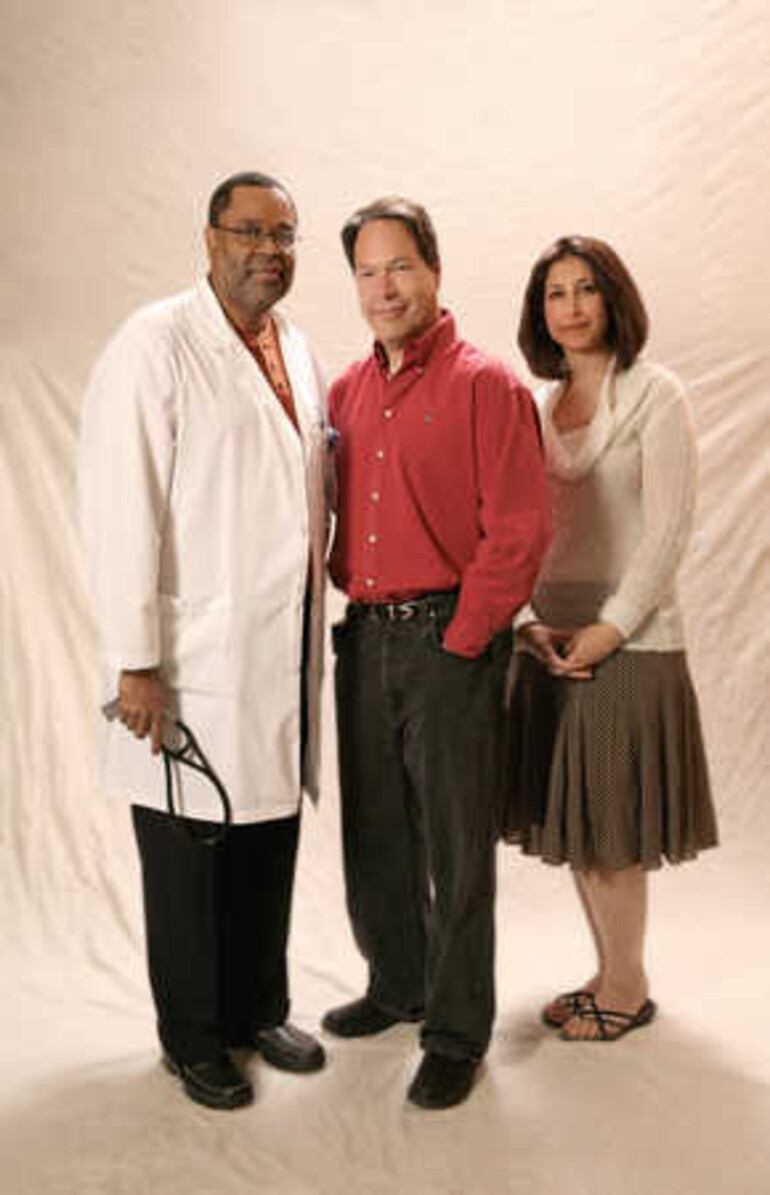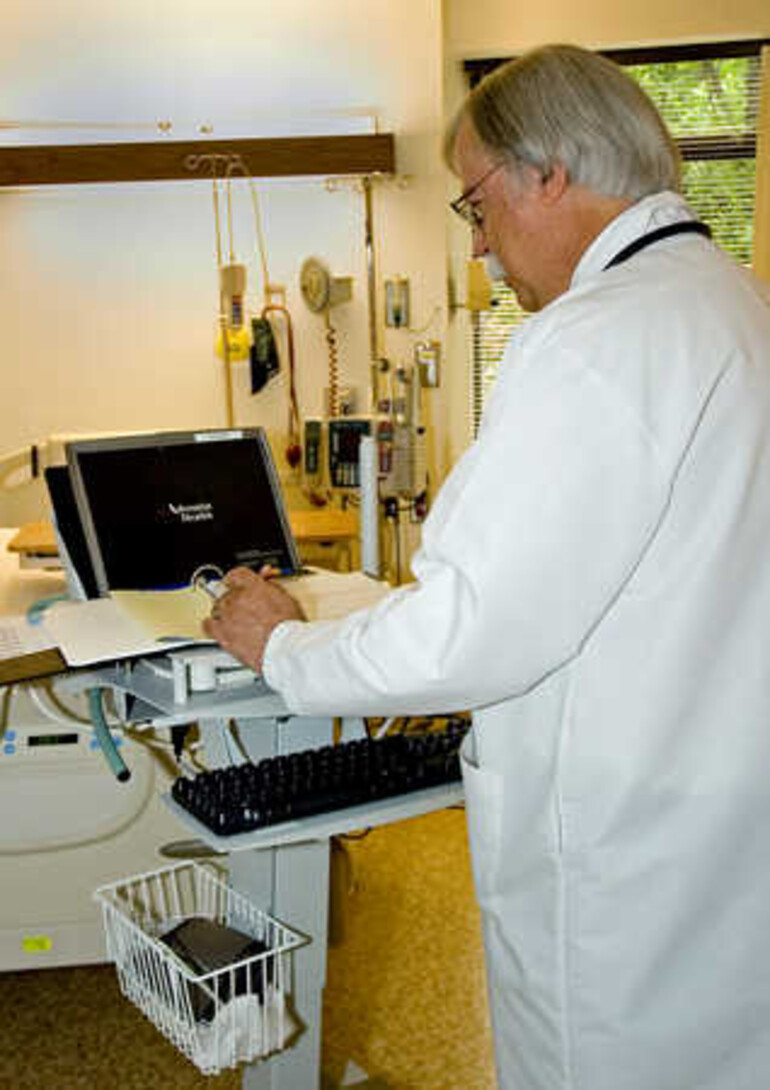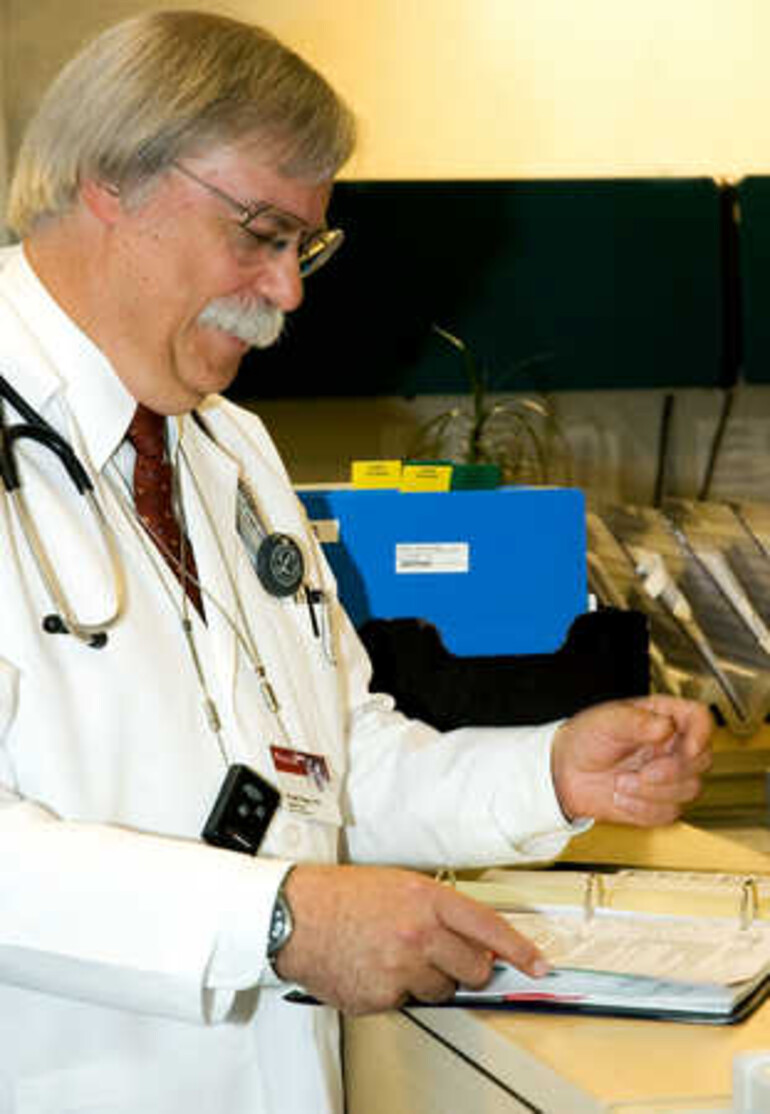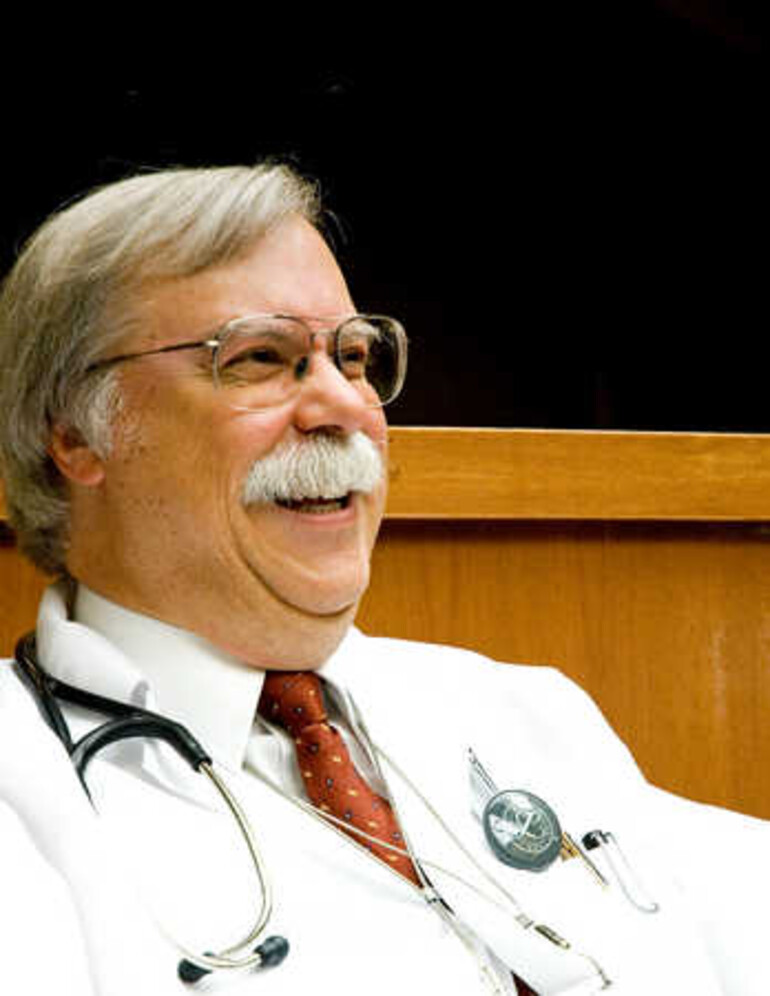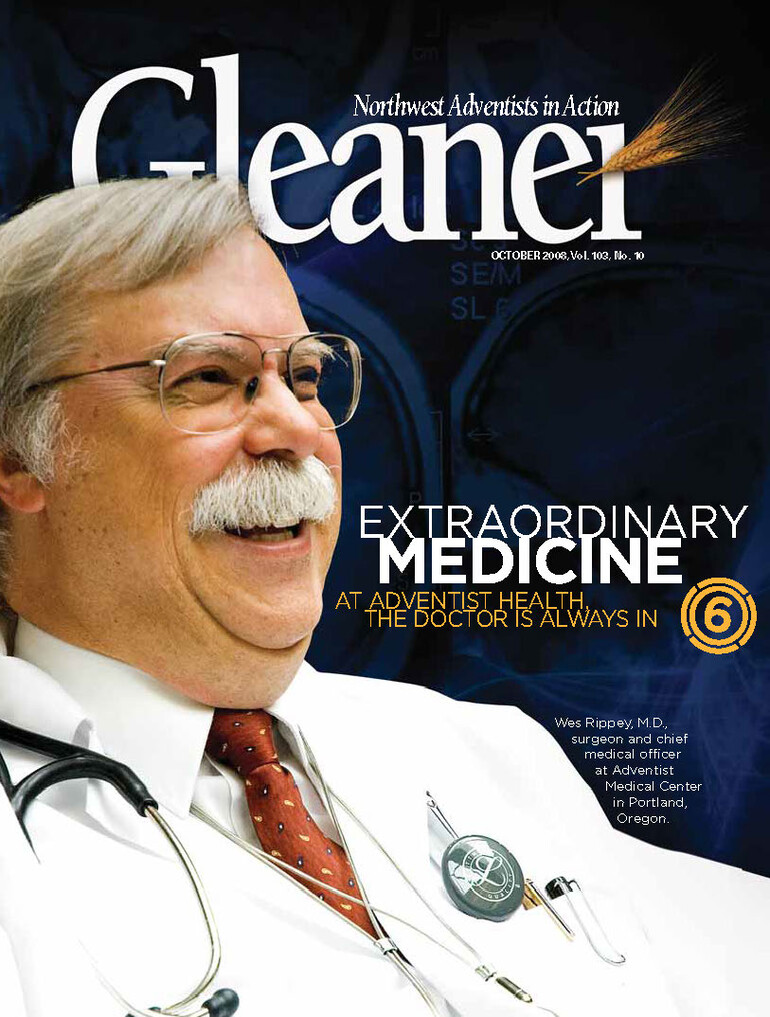It’s the playoffs. Dignity is on the line—there’s only one touchdown between you and victory. As you dive for the ball, hefty hustlers from the other team pounce and clobber. You capture the pigskin to rapturous applause, but, in horror, you realize your leg is fractured in three places.
Sirens wail, carrying you to the emergency room. From the time you arrive at the hospital to when you leave (four days later because of surgery), you meet a flurry of faces. Besides the admitter, the nurse, the emergency doctor, the orthopedic surgeon, the anesthesiologist, the physician assistant and the orderly, you see what seems like a dozen different doctors.
It’s busy. It’s hectic. It’s traditional medicine.
Hospitalists Usher in a New Era of Care at Adventist Health
A relatively new breed of doctor, hospitalists—as their name suggests—specialize in hospital-based medicine. They don’t have a separate practice. Instead they devote their entire career to inpatients alone. And the result: In most instances, the care is more streamlined and efficient.
From admissions to discharge, hospitalists supervise the care of inpatients—simplifying the process, improving communication and reducing the chance of medical error.
“We take care of patients in the hospital. It’s a division of labor that’s proven more effective and of better quality,” says hospitalist Maryam Jamshidi, M.D., of Walla Walla General Hospital. “There is a continuity of care that I really like. Patients have two doctors instead of 14.”
Jamshidi, who came to Walla Walla, Washington, from Vancouver, Washington, started as a primary care physician and likes the busy feel of a small-town hospital. “I love it at WWGH. I like the intensity and acuity of care. I also like how the hospital provides support.”
Improving Service In and Out of Hospitals
Hospitalists play a pivotal role in improving processes both in the hospital and in their colleagues’ clinics.
“One of the strengths a hospitalist program offers is the ability to have a doctor in the hospital who can instantly deal with problems that may arise,” says Wes Rippey, M.D., surgeon and chief medical officer at Adventist Medical Center in Portland, Oregon.
As an Adventist Health board member, Rippey lauds hospitalists for the concentrated time they spend with patients. “The hospital is their only focus. They can spend a significant amount of time with patients and speed up hospital stays.”
“They [hospitalists] can enjoy quality time with their patients, assess transitions and not rush to get back to the clinic,” states Lary Davy, president and CEO of Tillamook County General Hospital, which started a hospitalist program in July.
And, Davy says, it’s nice for nurses to have ready access to doctors for admissions and discharges. “Being on site reduces response times for hospital admissions and it doesn’t back up a physician’s office either, which in turn reduces wait times in their clinics,” he says.
“Speaking as a CMO, their ability to assist specialties that have few doctors is invaluable,” adds Rippey. “Since they’re based in the hospital, hospitalists can be the initial admitter and call specialists as consultants. This takes the pressure off specialties such as orthopedics and gastroenterology.”
Improving Care and Quality
And evidence suggests care improves with hospitalists. According to Larry Wellikson, M.D., and CEO of the Society of Hospital Medicine, more than 100 studies have been published on the impact of hospitalists. He says, “Most studies show that hospitalists help reduce the risk of medical errors, reduce the length of patient stays and reduce hospital costs.”
“I’ve always believed this was the wave of the future,” says hospitalist David Kim, M.D., medical director of the inpatient programs at St. Helena Hospital and Redbud Community Hospital.
After training in the Air Force, Kim heard a seminar by Robert Watcher, the physician who originally coined the term “hospitalist.” He says, “After listening [to Watcher], I knew that was the kind of physician I wanted to be. Typically doctors have to wait months or years for progress with their patients. With hospital-based acute care, the transformation happens over a much shorter period of time.”
Along with professional satisfaction, hospitalist programs allow physicians to have a better quality of life. “It greatly reduces the amount of on-call time physicians have to take,” says Davy. “They’re actually off when they’re off. They actually get to have a life.”
More than anything though, hospitalist programs enable Adventist Health to stay focused on its No. 1 priority: mission. “If you look at our mission [to Share God’s Love], hospitalists allow more time with patients to carry out that promise, through quality care and conversations,” states Davy.
Most Adventist Health hospitals maintain hospitalist programs to extend the healing ministry of Christ.
To learn more about this healing mission, visit: www.adventisthealth.org.





